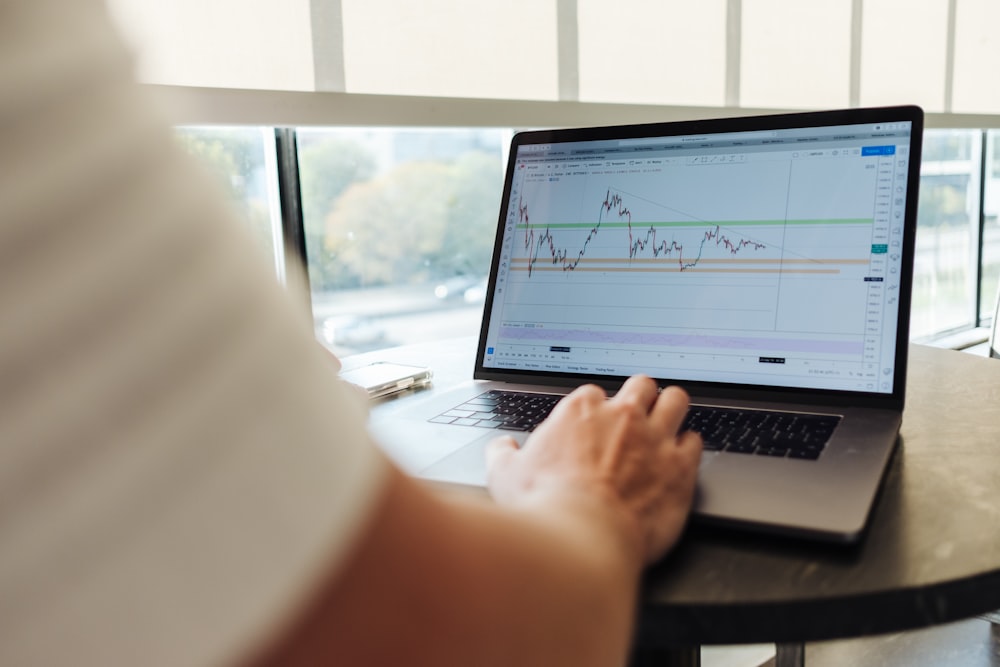Uncertainty In Financial Markets Remains As The War In Ukraine Continues
Image Source: Unsplash
This week will not be full of economic events, so the main focus of investors will be on geopolitics and the situation in Ukraine. This week, the Bank for International Settlements will also host a virtual meeting with speeches by many US officials, including Jerome Powell. There will be a NATO meeting on Wednesday. On Thursday, a summit of EU leaders on security issues will occur. US President Joe Biden plans to attend these events in Europe.
The Federal Reserve's optimistic economic forecasts supported the US stock market last week. US stock indices increased on Friday, ending the week with the biggest gain since November 2020. At market close on Friday, the Dow Jones Index (US30) added 0.80% (+5.32% for the week), the S&P 500 (US500) increased by 1.17% (+6.20% for the week), and the Nasdaq Technology Index (US100) jumped by 2.05% (+8.59% for the week). All three major indices closed the week in positive territory. On the other hand, Goldman Sachs experts believe that global markets underestimate the risks associated with the war in Ukraine.
The Boeing Co. shares began the week with a sharp drop, falling more than 6% after confirmed reports on the Boeing 737 passenger aircraft crash in China.
Major European indices closed on the plus side last week. German DAX (DE30) gained 0.17% on Friday (+4.24% for the week), French CAC 40 (FR40) added 0.12% (+5.10% for the week), Spanish IBEX 35 (ES35) gained 0.07% (+2.31% for the week), British FTSE 100 (UK100) jumped by 0.26% (+3.48% for the week). The ECB and the Fed will not work in sync as the war in Ukraine affects their economies in different ways, European Central Bank President Christine Lagarde said on Monday. The ECB head also added that the US economy is less dependent on commodity imports than the European economy, and its trade will also suffer less. Climate change issues were also raised. Christine Lagarde noted that Europe's efforts to fight climate change and reduce its dependence on fossil fuels would boost inflation in the short and medium-term and lead to lower prices in the long term. The fundamental situation favors a rising dollar index and declining euro in the medium term.
The monetary policy of the Bank of England is now aimed at tightening. The Bank of England has already raised the interest rates three times, but this does not allow the British pound to show growth. The war in Ukraine has greatly affected the British economy, as rising energy and food prices hurt inflation in the country. Analysts forecast a further 0.5% rise in consumer prices in the UK.
On Sunday, Turkey's foreign minister said that Russia and Ukraine were moving closer to an agreement on "critical" issues. If a ceasefire agreement is not reached in the coming days, it may be difficult for markets to remain optimistic about the conflict. The war in Ukraine, rising commodity prices, supply chain problems, and tightening policies have all made investors less optimistic about global economic growth.
Russia's invasion of Ukraine and subsequent sanctions could exacerbate the supply shortfall if Western countries fail to negotiate increased supplies from Saudi Arabia and the United Arab Emirates. Oil prices picked up again earlier this week as the EU wants to join the US in imposing an oil embargo on Russia. If the supply situation remains unchanged, oil prices will continue their upward trend.
Asian markets rose significantly last week. Japan's Nikkei 225 (JP225) gained 5.88% over the week, Hong Kong's Hang Seng (HK50) added 5.98% over the week, and Australia's S&P/ASX 200 (AU200) jumped 3.27% over the week. There is a bank holiday in Japan today. China left unchanged the one-year and five-year loan prime rates (LPR). The annual LPR is 3.7%. The rate for five-year loans was left at 4.6%. Last week China's Financial Stability and Development Committee announced its intention to keep financial markets stable and take measures to stimulate economic growth. Therefore, many analysts expected that the People's Bank of China could cut rates early in March.
Futures on orange juice (+6.2%), natural gas (+3.81%), lumber (+3.49%) and copper (+1.96%) showed the biggest gains at the end of the week. The biggest fall was recorded in palladium futures (-17.26%), WTI oil (-5.53%), platinum (-5.4%), wheat (-4.2%), BRENT oil (-3.97%), silver (-3.92%), gold (-3.2%) and corn (-2.79%).
Main market quotes:
- S&P 500 (F) (US500) 4,463.12 +51.45 (+1.17%)
- Dow Jones (US30) 34,754.93 +274.17 (+0.80%)
- DAX (DE40) 14,413.09 +25.03 (+0.17%)
- FTSE 100 (UK100) 7,404.73 +19.39 (+0.26%)
- USD Index 98.23 +0.26 (+0.26%)
Important events for today:
- – China PBoC Loan Prime Rate at 03:15 (GMT+2);
- – Eurozone ECB President Lagarde Speaks at 09:30 (GMT+2);
- – US FOMC Member Bostic Speaks at 14:00 (GMT+2);
- – US Fed Chair Powell Speaks at 16:00 (GMT+2).
Disclosure: This article reflects a personal opinion and should not be interpreted as an investment advice, and/or offer, and/or a persistent request for carrying out financial transactions, ...
more



